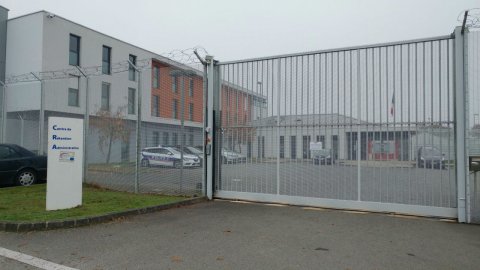Recent Developments in French Immigration Policy
The landscape of immigration policy in France has seen significant changes recently, particularly with the French Senate’s decision to exclude non-governmental organizations (NGOs) from migrant detention centers. This move has sparked discussions about the role of humanitarian organizations in the immigration process and the implications it has for migrants seeking assistance.
Understanding the Senate’s Decision
The French Senate’s vote to exclude NGOs from migrant detention centers is a pivotal decision that reflects ongoing debates about immigration and humanitarian aid in France. By limiting the presence of these organizations within detention facilities, the government aims to streamline immigration processes, but many critics argue that this could undermine the rights and safety of migrants.
Key Points of the Decision:
The Role of NGOs in Migrant Support
NGOs have historically played a crucial role in providing support to migrants, including legal assistance, food, and mental health services. Their presence in detention centers often ensures that migrants are treated humanely and that their rights are respected. The exclusion from these facilities raises concerns about the adequacy of care and oversight provided to detainees.
Potential Consequences of the Exclusion:
Impact on Immigration Reform
This decision is part of a broader trend in immigration reform across Europe, where many countries are grappling with how to handle increasing numbers of migrants. As France tightens its immigration policies, it is essential to consider the balance between security and humanitarian obligations.
In light of recent immigration news, **the exclusion of NGOs** may reflect a shift towards more stringent immigration controls, often seen in other nations as well. For instance, discussions around **immigration reform news** are prevalent in the U.S., where policies are continuously evolving under different administrations.
Public Response and Future Implications
The public’s reaction to this decision has been mixed. While some support tighter immigration controls, many advocate for the rights of migrants and the necessity of NGO involvement in ensuring humane treatment. The ongoing debates suggest that France’s immigration policy will continue to evolve, particularly as it faces criticism from both domestic and international communities.
Public Sentiment:
As immigration issues remain at the forefront of political discussions in France and other countries, it is imperative to monitor how these policies impact migrants. Future developments in **immigration news** and legislative changes will likely shape the experiences of those navigating the complex immigration system.
Conclusion
The French Senate’s decision to exclude NGOs from migrant detention centers marks a critical juncture in the country’s approach to immigration. As discussions continue about the balance between security and humanitarian needs, the implications for migrants and the organizations that support them will be closely watched. The evolving landscape of immigration policies in France will undoubtedly influence how other countries approach similar issues, making it a significant area for ongoing analysis and discussion.
In conclusion, understanding the ramifications of such policy decisions is essential, not only for those directly affected but also for the broader dialogue surrounding immigration reform and humanitarian efforts worldwide.










